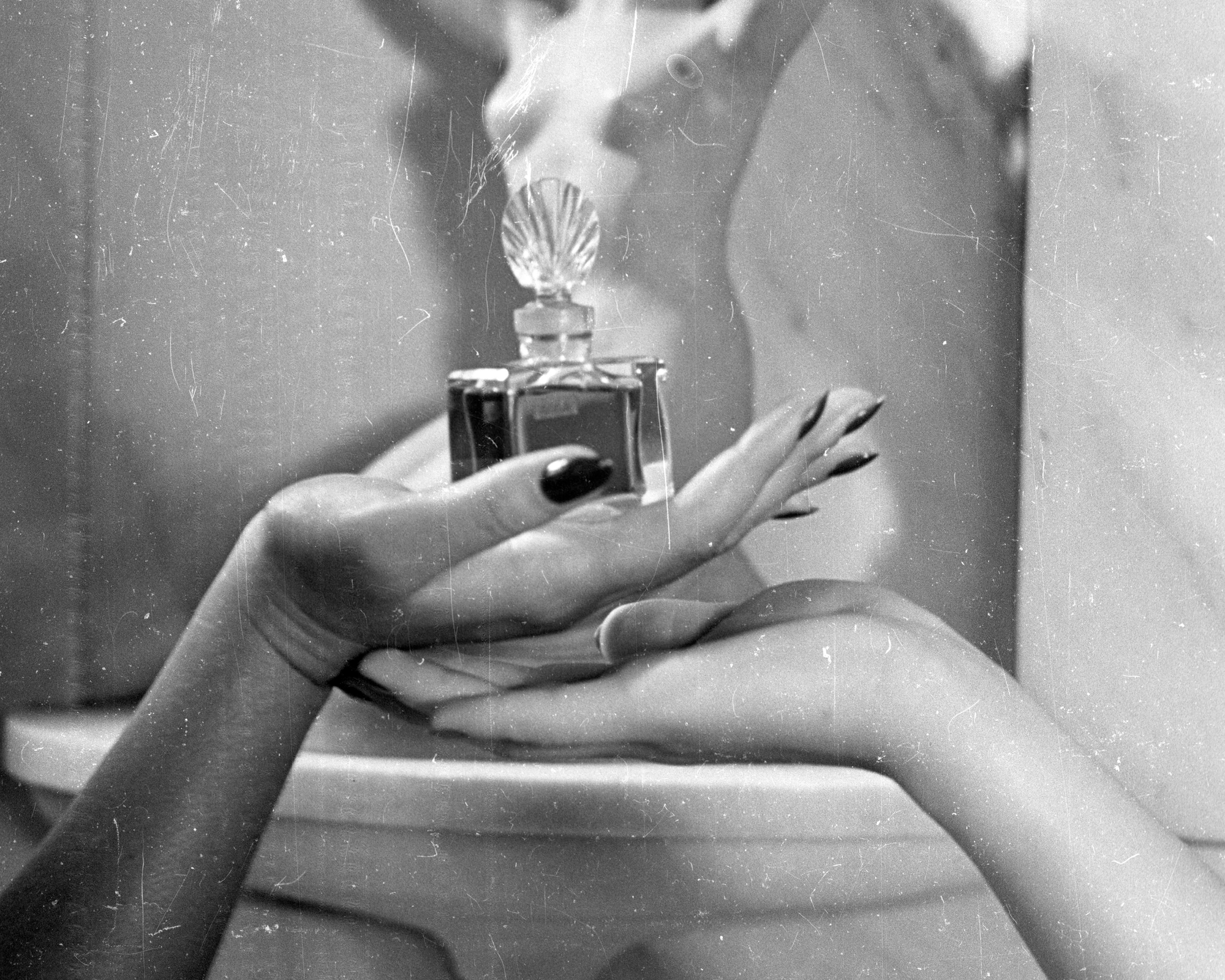We usually mention smell last among our senses, even though it is an exciting tool that is very different from our other senses. What’s more, it is something that we have not yet managed to translate into digital language. Here is the third Hype Lab article of the DIALOG thematic month!
The day I should have started to work on this article, I had just lost my sense of smell. I became so demotivated that I needed another day to get used to this unusual condition and get into writing. As a holistic person, I have never underestimated the importance of smell, but now that Covid deprived me of it, I appreciated it even more. And I know I’m not alone! Yet, the thought, that preoccupies me a lot, came to me again: if, as a result of a pandemic, we recognize just how important our physical experiences are, how vital it is to reconnect more strongly with our bodies, and to listen to its signals, not just in trouble, but long before; and after all the time spent in rooms, in front of screens, even those who have not given it any significance before, can’t wait to compensate with great walks in nature, or at least in the city. Then how is it possible that in this life situation the metaverse sets off and the alarm bells of the physical world are being rung by futurologists? I will not answer these questions in this article, because on Hype&Hyper we dedicate a whole month to the coexistence and the contradictory nature of the digital and analog worlds. In this piece, I look at the valorization of our senses, primarily the sense of smell, which we seem to have forgotten for several years, only to be confronted with its power again with elemental force. To do this, I asked Miguel Matos, a perfumer-journalist-curator, for help.
Immanuel Kant says that of the five senses, smell deserves the least attention. According to him, this is our most disagreeable and most indispensable sense, mainly because we smell a lot more disgusting things than pleasant ones, and the latter are a momentary pleasure. “Smell gets the least attention in our society. Sight, hearing, but even touching is much more appreciated, which I think is weird because scent molecules keep bombarding us even when we’re not actually sniffing. All the time,” Miguel begins our conversation, whom we met in November, at the presentation of one of his own fragrances at 7scents perfumery.
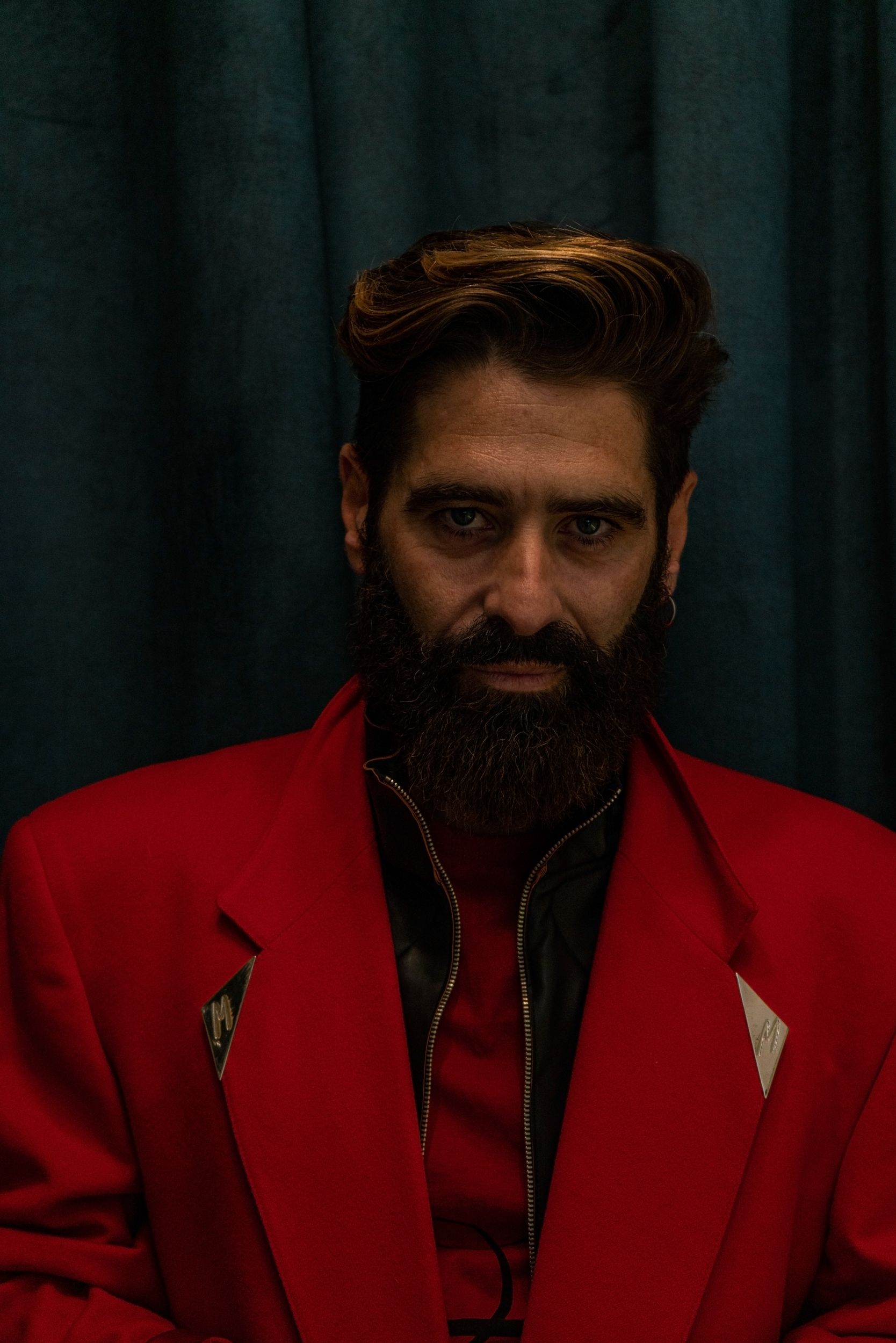
The reason for this probably has something to do with Western Christian cultural traditions: Archbishop Péter Pázmány in one place described man as a shitbag in the 16th century, among other things, for the unpleasant odors he emits as a result of certain bodily functions. This view has led, among other things, to a dualistic conception of our body and mind, but also to associating smell with disgusting things rather than ethereal experiences. But not only has this provoked resentment in church communities about smell, but also that we are talking about a device that connects us to our instincts much more directly than our other senses, and that we have a harder time influencing this, thus evoking the uncontrollability of animal nature (we will return to the neurobiological aspects later). In the highly conservative Victorian era, for example, young girls were forbidden to smell tuberose because they feared that their sensual scent would arouse their desires that had been suppressed according to social norms. It is a paradox that the church did not abstain from the manipulative power of scents, for example, the incense, which can significantly help believers be in a transcendent state in the liturgy.
The interesting thing is that even though we have known since Proust how a combination of flavors and scents can induce our memory, no matter the multi-billion dollar perfume industry, if you ask a teenager today about which one to give up, their social media account or their sense of smell, they will choose the latter (it is the result of actual research).
So our smell is not in the focus of our perception until we lose it. However, its absence can even push us into tragic depths: depression, anorexia, and a general deterioration in the quality of life can follow if our sense of smell goes away for a long time. Moreover, there will be a sense of isolation, an inability to connect. Miguel explains, “When two people get close to each other, molecules released from their bodies enter each other’s bodies through their noses. So we gather information about each other without even saying a word. We could not touch each other during the social distancing, but due to our sense of smell, we were still able to have a physical connection.”
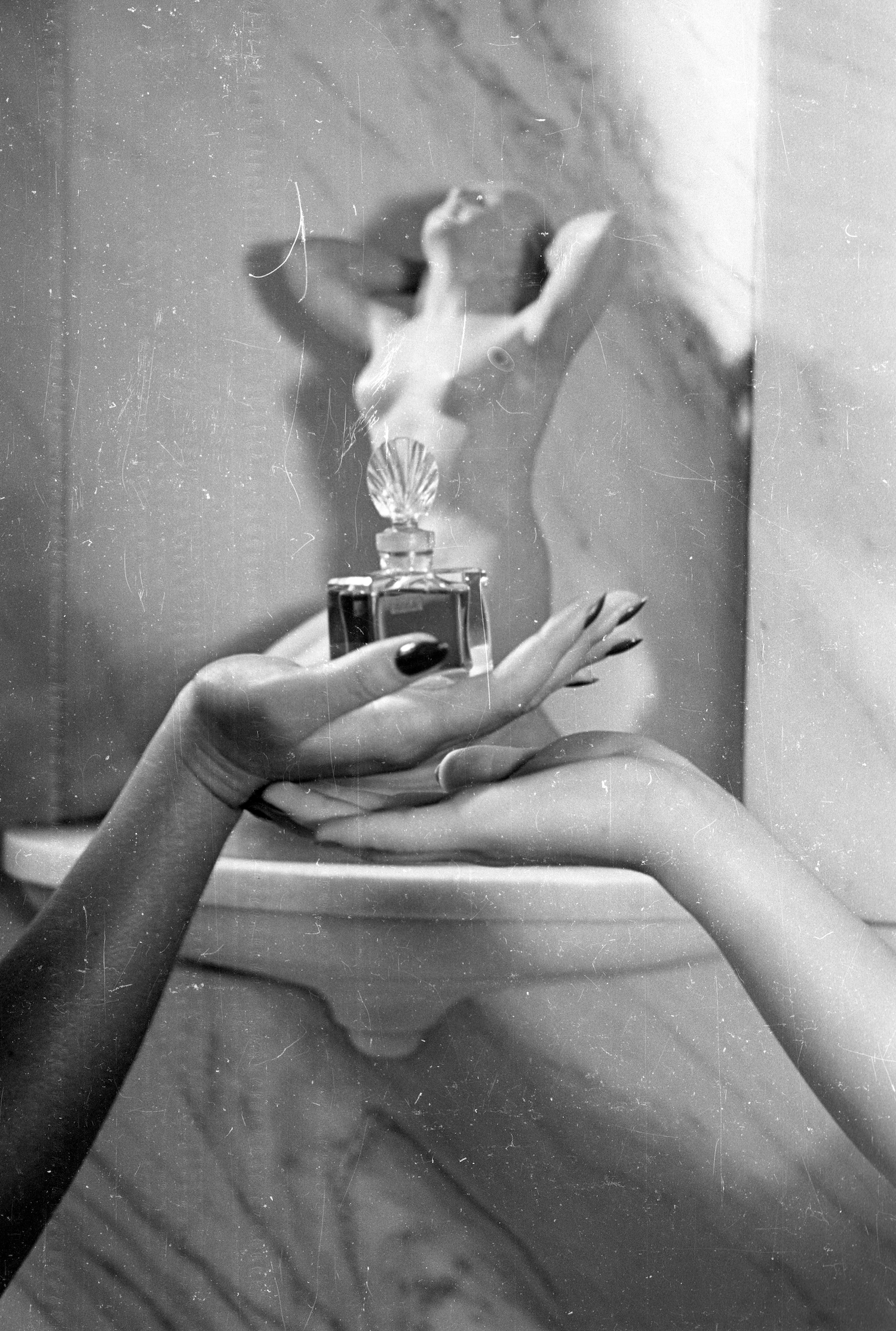
Scents affect our mood, our performance, our physical and mental well-being. We’ve all heard that we are subconsciously attracted to certain people because our immune system recognizes that it has found something very different from it, and that may be the key to successful reproduction. As far as Proust and neurobiology go, the explanation of why scents have such an elemental effect on us lies in the structure of the brain. The olfactory cortex extends directly into the center of emotional memory, the amygdala, and the entorhinal cortex. Thus, scents (more precisely, the clusters of molecules that we perceive through the receptors in the nose) go directly to the emotional center, bypassing the thalamus, unlike the paths of our other senses. Science thus explains why a scent can bring to the surface subconscious feelings or long-forgotten memories.
Going back to reconnecting with our bodies: in our conversation, Miguel draws my attention to the work of a Portuguese philosopher, Maria João Ceitil. In Pôr o corpo a pensar (Making the Body Think), Ceitil, who was greatly influenced by the French philosopher Georges Bataille, argues that the origin of our thinking is our body, whose unique structure makes it impossible for us to perceive the outside world in the same way, objectively. “A person with a weaker sense of smell and another, with a more intense sense, receives the outside world in a completely different way, so their reality is different. Many people think that smells, or dreams, deceive us because they distort reality. I think the reality is more tricky! Think about how much a nightmare affects your next day: you’re depressed or sad, so the same reality you saw in a way yesterday, the next day you’re going to perceive it completely differently. But can’t a dream be considered a reality then?” Miguel asks questions.
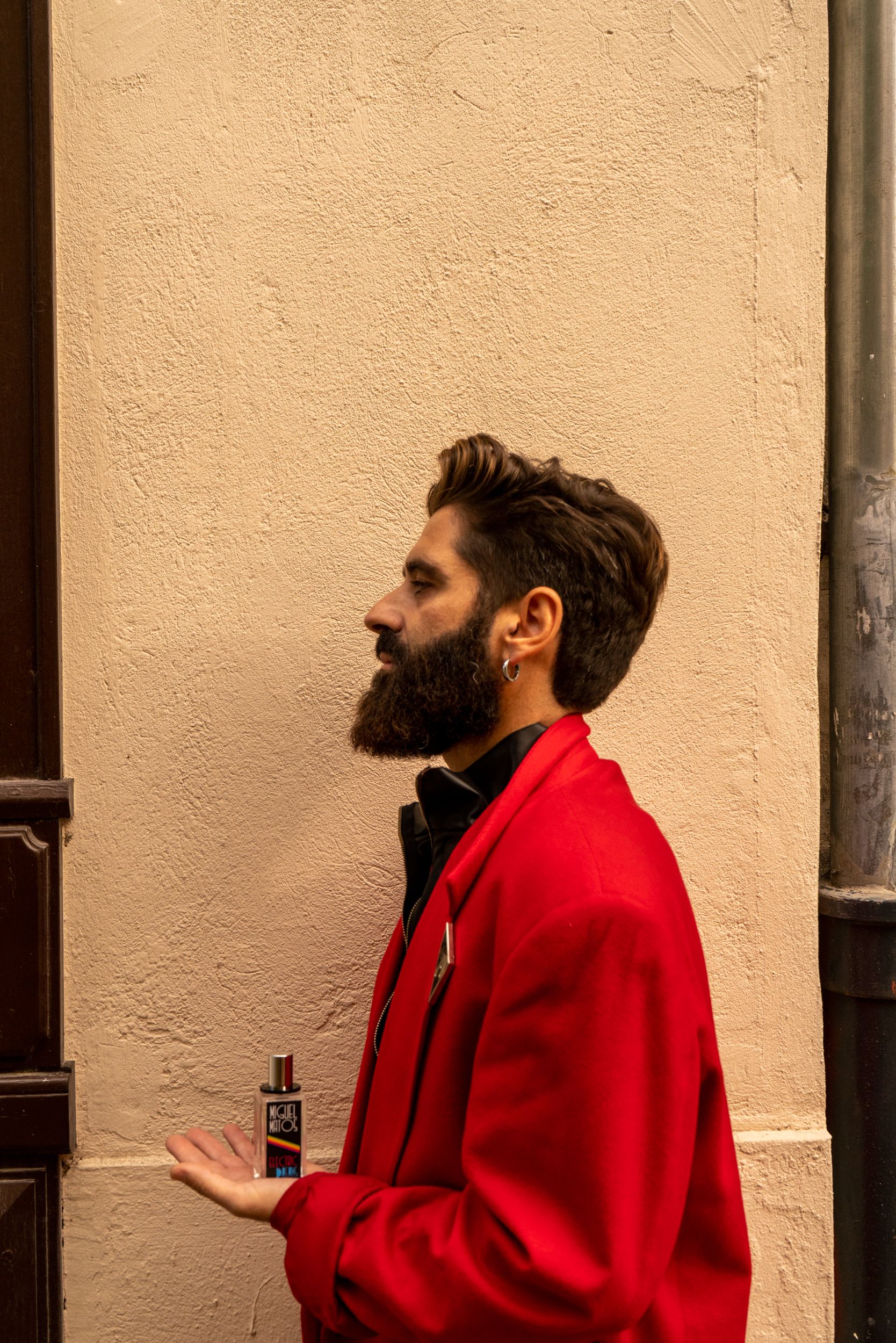
Ceitil also dedicates an entire chapter to scents. She highlights the number of ways in which we have tried to suppress the natural odors of our bodies in the past centuries and even today, which further deepens the gap between body and mind. “We consider smells animal characteristics, even though it’s a part of self-knowledge to connect to them.” Of course, it doesn’t mean that we shouldn’t use deodorant or perfume from now on, as Miguel’s profession is also about creating scents. At the same time, it takes courage to set aside rationality and surrender to scents, to discover what each one triggers in us, and then how each one works on us, and how can they be an extension of our personality, our inner world, or our means of communication. Ceitil’s thoughts reshaped Miguel’s entire worldview, which he said was rigid and rational in structure. As a result of the book, he also organized an exhibition with the same title at the Institute for Art and Olfaction in Los Angeles. The focus of the interdisciplinary exhibition was the scents created by renowned perfumers, based on memories and impressions. So the installations were made up of scents, lights and sound compositions, and visitors could put together their impressions individually.
Miguel’s work as a perfumer is also clearly influenced by this attitude, which is to draw from memories and impressions and then give them back. Due to his personal and honest nature, it is easy to relate to his work: he recalled his childhood experiences in a perfume that evoked the smell of a swimming pool, so clearly that he immediately flew me back to the chlorine and my wet swimsuit, but in the form of a pleasant and wearable perfume. And his latest creation, Electric Dreams, evokes the ’80s film of the same title with elements like burnt-out computer smoke, tutti frutti chewing gum, or cheap wine—with quite a bit of success.
And while we’re speaking of computers, don’t think that there are no efforts to make smells digital. Several tech companies are working on how to access information through olfactory data in addition to text and voice searches. It has already been recognized that smell and scents also play an important role in learning (e.g. memory development), medicine (e.g. treating mood disorders) and marketing (the manipulative smell of shops), the only question is how can all this be transferred to digital devices such as a webshop. Attempts have also been made to preserve certain natural scents so that endangered natural smells, such as jasmine, sandalwood or rose, can be preserved with codes. However, we don’t yet know a device that would, say, add a fragrance extension to Instagram and add an odor to the food photos posted…
And what does the perfumer think about all this? “Thank you, I’m not interested. The complex scent of a forest, made up of millions of molecules, can only be experienced on the spot in a given season, in given weather, and I don’t think that anything can replace this.”
Miguel Matos portraits: @artistscent / Gergely Edward Nagy

Like a local #3—Naspolya Nassolda, Szír Center, ONO Poké Bowl
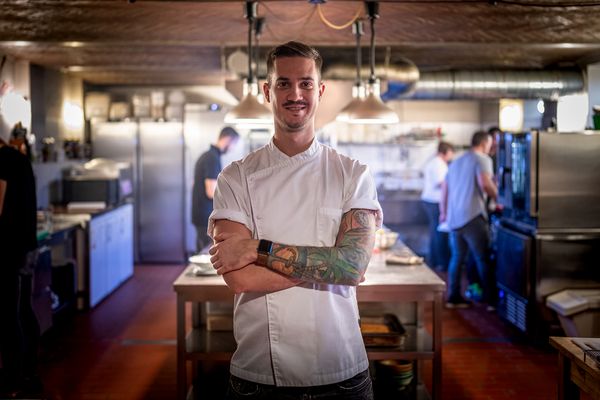
From serving design basics to service design methodology | Piqniq pack—Part 3










